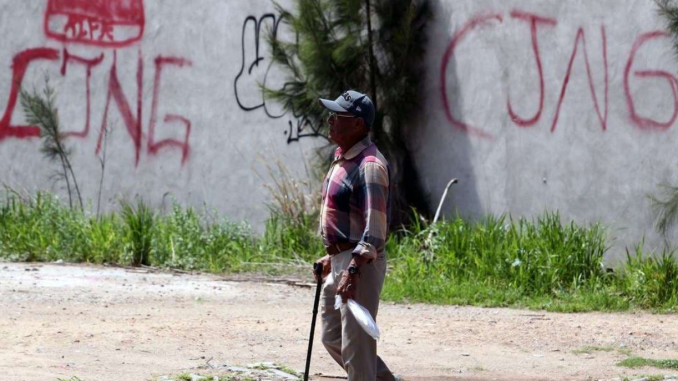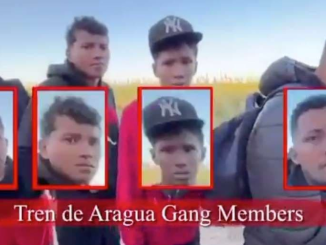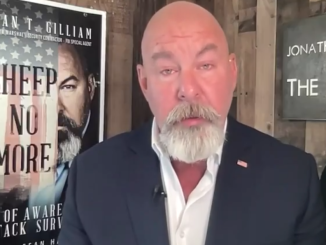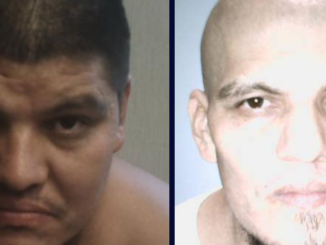
Mexico’s “most powerful and ruthless” cartels operate in all 50 states and clash in American cities, the U.S. Drug Enforcement Administration said in a May report.
The Jalisco and Sinaloa cartels have flooded major U.S. cities with meth and fentanyl and use violence to protect their turf, the report found.
“The deadly reach of the Mexican Sinaloa and Jalisco cartels into U.S. communities is extended by the wholesale-level traffickers and street dealers bringing the cartels’ drugs to market, sometimes creating their own deadly drug mixtures,” the DEA report says. “Together, the Sinaloa and Jalisco cartels have caused the worst drug crisis in U.S. history.”
{snip}
Synthetic drugs like fentanyl are more potent than plant-based drugs, cheaper to make and easier to move, which allows both cartels to infiltrate American and control all aspects of the drug trade from production to delivery.
Sinaloa and Jalisco have “effectively eliminated any competition in U.S. markets” and “dictate the flow of nearly all illicit drugs” into the country, according to the report, which notes that thousands of cartel-linked dealers currently operate in the U.S.
Late last week, the “Skittles Man,” whose real name is Roque Bustamante, was one of seven Sinaloa Cartel members arrested in Florida for allegedly supplying thousands of Mexican-made fentanyl pills, according to federal prosecutors.
The notorious nickname was created because he allegedly sold large supplies of rainbow-colored fentanyl pills.
An undercover law enforcement operation also busted the cartel members arranging a weapons-smuggling operation into Mexico, including .50 caliber high-powered rifles, court documents allege.
During the investigation, the DEA seized about 21 kilograms of pure fentanyl, 70,000 rainbow-colored fentanyl pills, 3,000 M30 blue fentanyl pills, 243 pounds of crystal meth, two kilos of cocaine and 24 guns, including 18 rifles and six pistols.
In late April, 12 traffickers tied to the Jalisco cartel were sentenced to 4.5 to 40 years in federal prison after they were busted in Del Rio, Texas, in 2021 for coordinating a shipment of nearly 200 kilograms of liquid methamphetamine worth $9.9 million.
{snip}
There were nearly 38,000 fentanyl-related deaths in the first six months of 2023, according to the DEA report.
“Fentantyl is the deadliest threat the U.S. has ever faced,” the report says. “Fentanyl and other synthetic drugs, like methamphetamine, are responsible for nearly all the fatal drug overdoses and poisonings in our country.”
Operations Last Mile and Overdrive: Drugs, money and violence
The DEA’s “Operation Last Mile” tracked the Jalisco and Sinaloa cartels’ distribution networks across the country.
In total, the major operation, which included countless law enforcement agencies from the local to federal levels, included 1,436 investigations and resulted in 3,337 arrests.
The DEA seized nearly 44 million fentanyl pills, over 6,500 pounds of fentanyl powder, more than 91,000 pounds of methamphetamine, 8,497 firearms and over $100 million, according to the report.
In 2023, law enforcement agencies within 150 miles of the border conducted nearly 600 bulk cash seizures valued at $18 million, the report says.
Most of the bulk cash seizures in 2023 were executed in Arizona, California, Texas and New Mexico.
Moving forward, the DEA has Sinaloa and Jalisco cartel members in its scope with “Operation Overdrive.”
{snip}
The operation “puts resources into the U.S.’s most violence- and overdose-plagued cities to target the violent dealers who kill thousands of Americans every week with fentanyl and with weapons.”
Mexico’s president has pushed back on outside pressure to deal with the cartels
Mexican President Andrés Manuel López Obrador and his administration have routinely denied or downplayed cartel violence and criminal activity.
He omitted any reference to drugs, crime or the cartels during his September 2023 State of the Union address.
He also said last March that his government was “not going to permit any foreign government to intervene in our territory, much less that a government’s armed forces intervene,” Al Jazeera reported.
Mexico had a chance to rip a major hole in the Jalisco cartel after arresting the brother of the cartel’s kingpin, Nemesio “El Mencho” Oseguera Cervantes.
El Mencho’s brother, Abraham Oseguera, was captured on April 21 by the Mexican army, but he was a free man nine days later. Mexican Judge Rogelio Leon released Oseguera, claiming there were no legal grounds to charge or keep him.
{snip}
“When (El Chapo’s son) was captured by police, his soliders, his henchmen basically put the entire town of Culiacan under siege,” Armes said. “They blocked all six entrances and exists to the city. They captured buses and lit them on fire.”
The cartel also opened fire on Mexican police and military, shot down a Blackhawk helicopter and passenger aircraft and blasted airports so authorities couldn’t get Lopez out of the country, he said.
“They were wreaking mayhem throughout the city to the point where it became so painful that the president of Mexico himself instructed law enforcement to release him,” Armes said. “He said it wasn’t worth the lives of so many people for the life of one.”
{snip}
“The most dangerous enemy is not always the one that can exert the most brute force,” Armes said. “The most dangerous enemy is actually the one who can accomplish their objective, or get themself out of a giant problem, without firing a single shot.
“And that’s what you see here (after El Mencho’s brother was released). I’ll let you draw your own conclusions.”
* Original Article:
https://www.foxnews.com/us/most-ruthless-mexican-cartels-operate-all-50-states-brings-turf-wars-us-dea.amp


